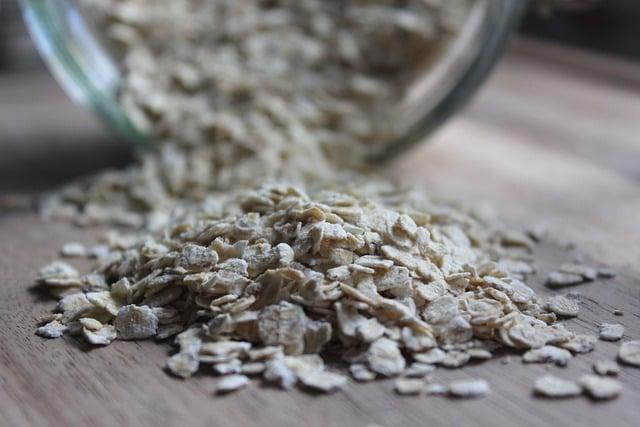- Introduction
- Benefits of Natural Nourishment
- Nourishing Foods to Include in Your Diet
- Holistic Approaches to Nourishing Naturally
- The Role of Mindfulness in Nourishment
- Conclusion
- FAQs
Introduction
As individuals seek healthier lifestyles and sustainable well-being, the concept of nourishing naturally has gained significant popularity. Nourishing naturally involves promoting health and wellness through wholesome, minimally processed foods, mindful eating practices, and a holistic approach to overall wellness. In this article, we will delve into the benefits of natural nourishment, explore nourishing foods to include in your diet, discuss holistic approaches to nourishing naturally, and highlight the role of mindfulness in cultivating optimal nourishment.
Benefits of Natural Nourishment
Embracing natural nourishment can offer a myriad of benefits for both your physical and mental well-being. By consuming whole foods in their most natural state, you provide your body with essential nutrients, antioxidants, and fiber that support overall health. These nutrients can boost immunity, enhance energy levels, and contribute to a healthy weight management. Moreover, a diet rich in natural foods can improve digestion, reduce the risk of chronic diseases, and promote glowing skin and hair.

(Image: Pixabay/@Skica911)
In addition to the physical benefits, natural nourishment can also positively impact mental health. Eating nutrient-dense foods can help stabilize mood, alleviate stress, and enhance cognitive function. By nourishing your body with real, unprocessed ingredients, you support mental clarity, emotional balance, and overall well-being.
Overall, prioritizing natural nourishment can lead to increased vitality, improved quality of life, and a greater sense of overall health and wellness.
Nourishing Foods to Include in Your Diet
When aiming to nourish your body naturally, it is essential to incorporate a variety of nutrient-dense foods into your daily meals. Fruits and vegetables should form the foundation of your diet, providing a rich source of vitamins, minerals, and antioxidants. Whole grains, legumes, nuts, and seeds offer additional nutrients, fiber, and healthy fats to support optimal health.

(Image: Pixabay/@Myriams-Fotos)
Lean proteins such as poultry, fish, tofu, and legumes can contribute to muscle repair and growth, while dairy or plant-based alternatives can supply calcium and vitamin D for bone health. Including herbs, spices, and healthy fats like olive oil and avocado can enhance the flavor and nutritional profile of your meals.
By diversifying your plate with a rainbow of colors and a variety of textures, you ensure that your body receives a range of essential nutrients to thrive and function at its best.
Holistic Approaches to Nourishing Naturally
Nourishing naturally extends beyond just what you eat; it encompasses a holistic approach to caring for your mind, body, and spirit. Engaging in regular physical activity, getting sufficient rest and sleep, managing stress through relaxation techniques, and fostering meaningful social connections are all integral components of holistic nourishment.

(Image: Pixabay/@Pexels)
Exploring practices such as yoga, meditation, aromatherapy, and spending time in nature can further deepen your connection to self and promote overall well-being. Integrating mindfulness and gratitude into daily routines can cultivate a sense of contentment, boost resilience, and enhance the quality of life.
By embracing a holistic lifestyle that nurtures your entire being, you can achieve a harmonious balance that supports your health and vitality on multiple levels.
The Role of Mindfulness in Nourishment
Mindfulness plays a pivotal role in the practice of natural nourishment, as it fosters a deep awareness and appreciation for the present moment and the sensory experience of eating. By eating mindfully, you can savor the flavors, textures, and aromas of your food, leading to greater satisfaction and enjoyment of meals.

(Image: Pixabay/@Pexels)
Practicing mindful eating also encourages listening to your body's hunger and fullness cues, promoting a healthy relationship with food and preventing overeating. Being mindful of portion sizes, chewing food slowly, and minimizing distractions during meals can enhance digestion and nutrient absorption.
By incorporating mindfulness into your eating habits, you can transform mealtime into a nourishing practice that honors your body and nurtures your overall well-being.
Conclusion
In conclusion, nourishing naturally involves embracing a holistic approach to health and wellness by prioritizing nutrient-dense foods, mindful eating practices, and overall well-being. By incorporating diverse, whole foods into your diet, engaging in holistic lifestyle practices, and cultivating mindfulness in your daily routines, you can support optimal nourishment for your mind, body, and spirit. The benefits of natural nourishment extend beyond physical health to encompass mental clarity, emotional balance, and enhanced vitality, contributing to a balanced and fulfilling life.
FAQs
How can I start incorporating natural nourishment into my diet?
To begin incorporating natural nourishment into your diet, focus on adding more whole, unprocessed foods such as fruits, vegetables, whole grains, lean proteins, and healthy fats. Gradually replace highly processed or sugary foods with nutrient-dense alternatives to fuel your body with essential nutrients.
What are some simple mindfulness practices I can integrate into my daily routine?
Simple mindfulness practices to integrate into your daily routine include mindful breathing exercises, body scan meditations, gratitude journaling, and mindful eating. Taking a few moments each day to pause, breathe, and connect with the present moment can help reduce stress, enhance focus, and promote overall well-being.

